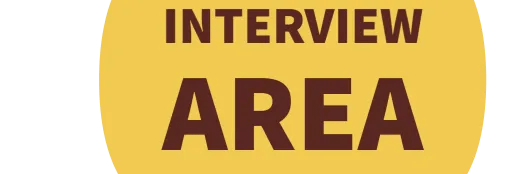It’s almost impossible to receive a job offer without first attending an interview. But then who’d want to take a job without first meeting their new boss? The secret to a successful interview lies in the preparation; it’s worth spending a little time doing your homework.
Good employers understand the pitfalls of interviewing, but the process is slowly becoming more structured, sophisticated and fair. Many companies will use more unexpected interview questions to help assess personality. Some might also use a psychometric questionnaire to see how well your personality fits. Depending on the role, you might be asked to do an additional test or take part in a role-play to assess your skills.
If you stick to a few guidelines though, you’ll have no problem handling the interview questions you’re faced with and breeze through your next job interview. You can also download a checklist to help you with your interview preparation at the bottom of this page.
Before the interview
Preparation is the key. Here are a few things you might like to think about:
- Research the organisation. Look at their website and read any news you can find about them.
- If you’re going for a change of career, research the sector. Look at industry association websites and magazines to get a feel for the latest developments.
- Prepare answers to the standard interview questions that form the basis of most interviews.
- Be ready with a few questions for the interviewer; this shows you’re keen and on the ball.
- Check the format of the interview and find out who’ll be interviewing you. It could throw you off if you unexpectedly have to face an interview panel of six people!
- Make sure you dress appropriately.
- Re-read your CV and application letter and make additional copies with you to the interview.
- Plan your journey and check for any potential delays.
At the interview
Ideally, you want to make a good impression in the first few minutes of the interview. Try to:
- Plan to get to your interview at least five minutes early. If you’re going to be unavoidably delayed, make sure you let your interviewer know.
- Always switch off your mobile phone before you enter the recruiter’s building.
Sometimes the interviewer might want to provoke a stronger reaction so expect to be thrown a few difficult interview questions. Some common ones include:
- What are your weaknesses?
- What would your colleagues say are your weaknesses?
- Describe a situation when your work was criticised?
Success here depends more on not getting flustered and thinking on your feet than having the ‘right answer. Just be honest and give reasons for your answers. Owning up to past mistakes and explaining what you learned from them shows you’re a real person and not a robot.
Interview styles can vary dramatically; whatever the situation, try to remember:
- Be friendly and courteous to everyone you meet, from the receptionist onwards. You never know who might have a say in your appointment.
- Use positive body language.
- When answering interview questions, relate parts of the job description to relevant experience on your CV.
- Make the most of your research and quote it where appropriate.
- If you face a panel interview, make sure you talk to everyone rather than directing your answers at one person.
- Find out as much as you can about the job. For example, who would you report to? Why is the job vacant? What are the promotion prospects?
- Never mention salary unless prompted to do so, and even then try not to agree on specific numbers without being given time to think.
- Always let the interviewer finish speaking before giving your response.
- When the interview is over, remember to ask when you can expect to hear back and what the next stage will entail.
After the interview
It’s always good to take stock of your overall performance, learn from the experience and prepare for the next step.
- Try to remember the interview questions you were asked and how you answered them to see if you could improve in future.
- If you think it’s appropriate, email the interviewer to say thank you but don’t be too pushy for a response.
- Remember to use any criticism constructively.
Interview checklist
Before the interview:
- Research the organisation, check the company website and search them on the internet
- If changing career/industry, research the industry
- Prepare answers to standard interview questions
- Make sure you know the name of the person or people interviewing you
- Check the format of the interview
- Check the formality of the interview and prepare an interview outfit
- Print out spare copies of your CV to take with you
- Re-read CV
- Plan the journey to the interview
- Check the news/traffic reports to make sure there are no problems
- Take a contact number for the company with you in case there are any problems
At the interview:
- Switch off the mobile phone
- Ask when you can expect to hear back
- After the interview:
- If appropriate, email to thank the interviewer for the opportunity
- If unsuccessful, contact the interviewer and ask for constructive criticism/feedback
